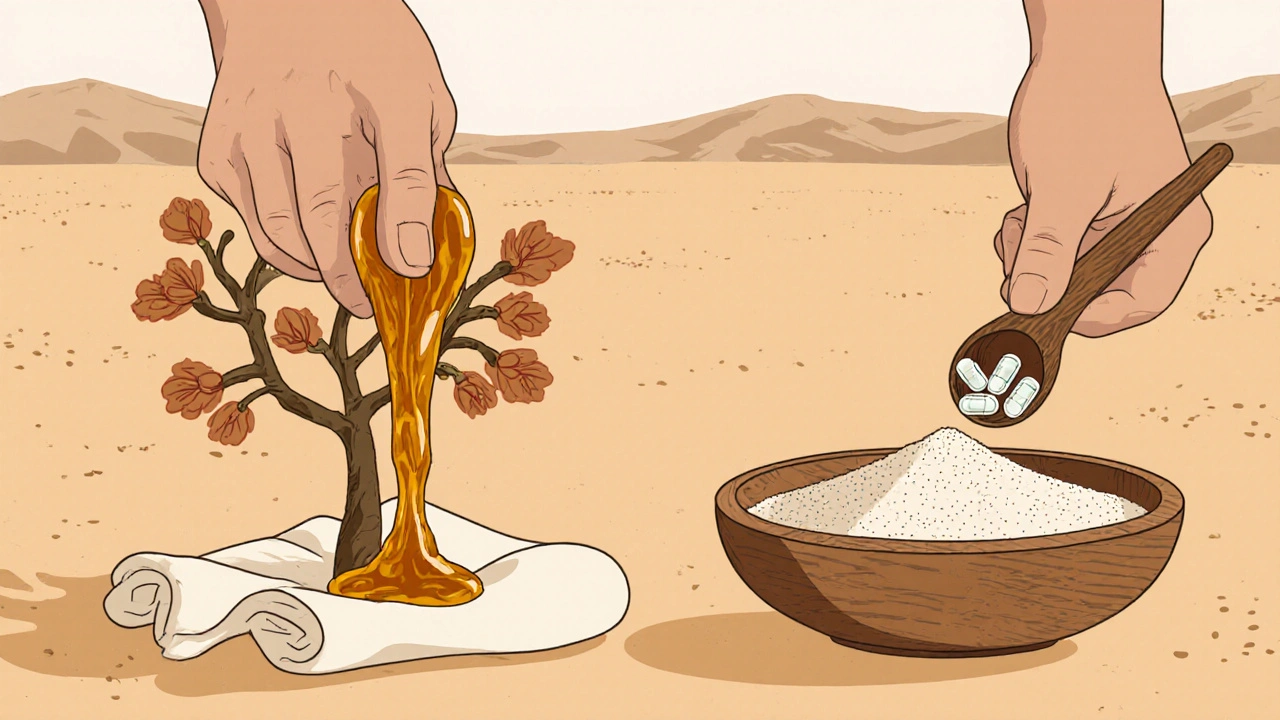Shuddha Guggulu: Uses, Benefits, and What Science Says
When people talk about Shuddha Guggulu, a purified form of guggul resin traditionally used in Ayurvedic medicine for metabolic and inflammatory conditions. Also known as purified guggul, it's not just an old remedy—it's one of the few herbal extracts studied in modern clinical trials for lipid control. Unlike raw guggul, Shuddha Guggulu goes through a specific cleansing process to remove impurities and boost active compounds like guggulsterones, which are what actually affect your body.
It’s commonly used for cholesterol support, a key reason many turn to it as a natural alternative to statins. Studies, including ones published in the Indian Journal of Medical Research, show it can lower LDL and triglycerides while raising HDL—similar to low-dose statins, but with fewer muscle-related side effects. It’s also used for inflammation, especially in joint pain and acne. People with osteoarthritis or persistent skin breakouts often report less swelling and redness after using it consistently for 8–12 weeks.
What you won’t find in most supplement ads is that Shuddha Guggulu isn’t magic. It works best when paired with diet changes and exercise. It doesn’t replace blood pressure meds or diabetes drugs. And while it’s generally safe, it can interact with thyroid meds, blood thinners, and birth control pills. If you’re on any prescription, talk to your doctor before starting it.
Most of the posts here focus on how natural remedies like Shuddha Guggulu stack up against conventional drugs—whether it’s comparing statins to herbal cholesterol options, or seeing how anti-inflammatory herbs fit into modern treatment plans. You’ll find real comparisons, not hype. No fluff. Just what works, what doesn’t, and what you need to watch out for.
- October 23, 2025
- Comments 15
- Medications and Supplements

